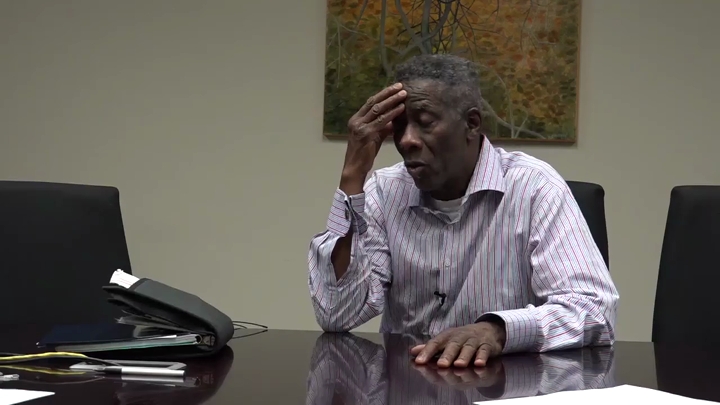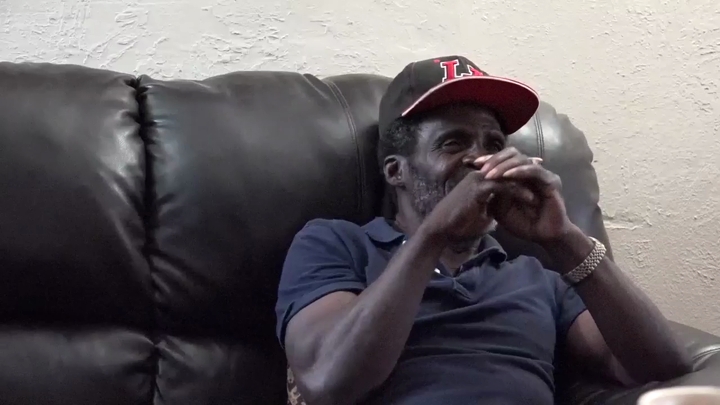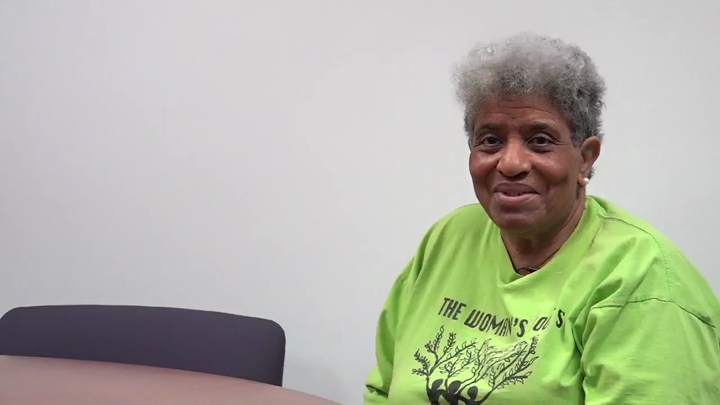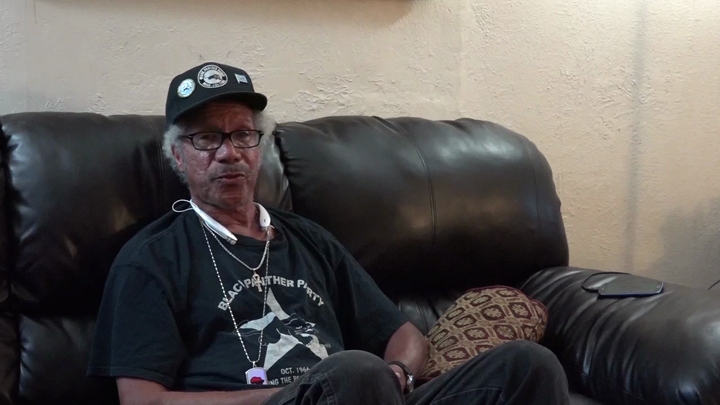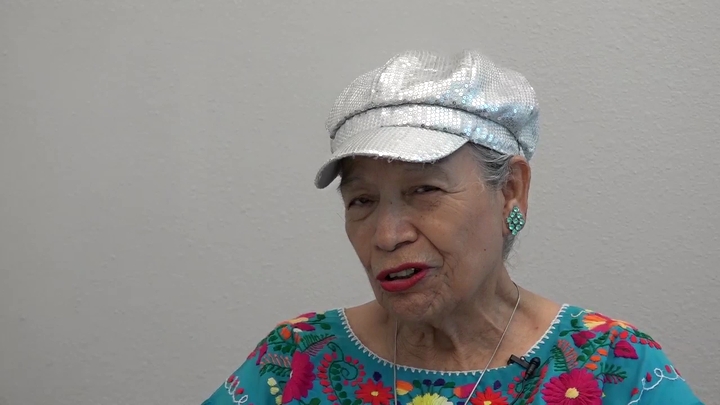Luthuli-Allen / Friction Between the Races
sign up or sign in to add/edit transcript
Lituli-Allen: But there’s a lot that I could say about that, because I think that the problem is that when you have competing ethnicities, struggling for scarce resources without the right kind of leadership, it is hard to keep them from perceiving each other as adversaries. Interviewer: Do you have an example of this idea you have if it played out somewhat here in Houston? Lituli-Allen: I can think of a lot of examples. The example of housing and let’s say, for example, what has happened with public housing. I should say housing and jobs. Houston is supposed to be the place, because of the diversity, where America’s future is going to be worked out. So, what’s happening is that you’ve had automation and cybernation, machines and computers, come in and you’ve had this new industrial revolution to actually take place. Let’s say you have a city that is 18-20 percent black and you have a city that’s 50 percent or more Hispanic, especially in terms of the school district it’s even higher than that. Their proportion is like 70-80 percent Hispanic. The problem is there’s not enough investment, fast enough. For example, in one of our target feeders for My Brother’s Keeper in the Scarborough area, over 60 percent of the Hispanic mothers don’t have a high school diploma. What that translates to is, basically, low-income work which means that you don’t have a livable wage. Without a livable wage, it means that your children are probably going to have to have access to, not first-tier or second-tier schools, they’re going to be third-tier schools. So, here you have a historically black school like Wheatley High School which is in the Fifth Ward and probably twelve to thirteen years ago that school is 100 percent black. Now it’s probably 55 percent Hispanic and 45 perfect black. What is happening is that the black people feel that, well, let me tell you like this from a teacher’s standpoint. The teachers say that half of the kids there are English deficient. So, they say they can’t make progress on the test scores because they have too many kids that are English deficient. Now, that is more or less an institutional problem, it’s not a problem of a community. It’s an institutional problem in terms of trying to bring that community to capacity whereby they can, in fact, perform. But it also means that in a city where you have a limited number of vouchers, housing choice vouchers, for public housing which basically operates on a lottery system. It means that the people who don’t have a livable wage, they’re going to be forced into the worst housing. These housing patterns that take place, they’re marked by a lot of other negative indicators, meaning crime, etc. I guess what I’m trying to point to, is that there are vast megatrends that are taking place that are causing friction between the races and a lot of the leadership, they’re not smart enough to understand that it is these vast trends and it is not these populations of people.
| Interview | Interview with Omowale Luthuli-Allen |
| Subjects | Housing › Neighborhoods |
| Housing › Public Housing | |
| Race Relations | |
| Race Relations › Black-Brown Race Relations | |
| Education › Speaking Spanish at School | |
| Education › Teachers and Administrators | |
| Tags | My Brothers Keeper |
| Phillis Wheatley High School, Houston, TX | |
| sign up or sign in to add/edit tags | |
| Interview date | 2016-06-17 |
| Interview source | CRBB Summer 2016 |
| Interviewees | Luthuli-Allen, Omawale |
| Duration | 00:06:48 |
| Citation | "Friction Between the Races ," from Omawale Luthuli-Allen oral history interview with , June 17, 2016, Civil Rights in Black and Brown Interview Database, https://crbb.tcu.edu/clips/3442/friction-between-the-races, accessed March 04, 2026 |


